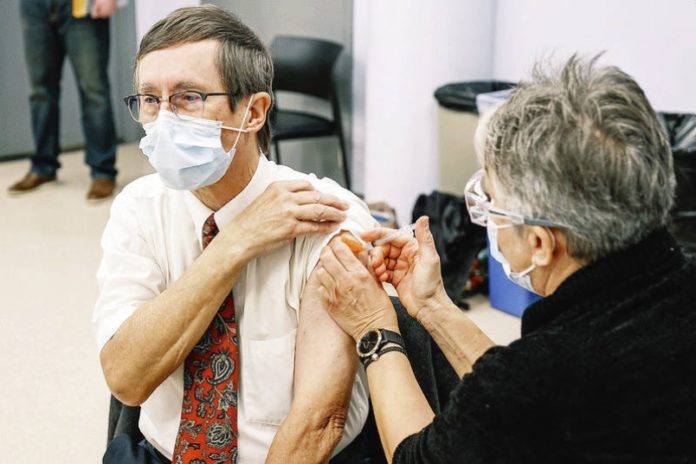The world is currently in the midst of its biggest vaccination of citizens ever, including right here in BC, where nearly 1 million residents have received their first vaccine shot.
Whether you’re receiving Pfizer, Moderna, AstraZeneca, or Johnson & Johnson, a certain portion of the population remains hesitant to receive any COVID-19 vaccine, despite high vaccination trust.
But why is that?
Victoria Buzz spoke with Dr. Paul A. Bramadat, a professor and director of the Centre for Studies in Religion and Society at the University of Victoria.
Here’s a breakdown from our interview with Dr. Bramadat:
Q: Who might be hesitant to get a vaccine, generally speaking?
A: Hesitancy, more often than not, is not even about vaccines.
There is a minority of people that are hesitant because of various reasons. They can, generally, be broken into, what I call, the three Capital R’s for resistance.
The first group are concerned over the ingredients in the vaccines, like stem cells or something morally ambiguous. This group can include concerned Catholics that think there are stem cells in the vaccinations, which goes against their morals. There is no proof of that and despite the Church supporting these vaccinations, people may still assert that belief.
The second group are often reformed Christians, like Protestants. Their belief is that if they are to get COVID-19, it’s part of God’s plan, both if they survive or die. They believe science interferes with God’s plan.
The third group you see a lot of in Nigeria, Afghanistan, and Pakistan. They often believe that the agencies involved to the highest degree have an unhealthy or unjust interest in the welfare of their respective society. In regards to COVID-19 that would be the World Health Organization (WHO) or the CIA — American agencies.
Q: Are there any human rights issues surrounding mandatory masks or vaccinations?
A: Basically, there is no right or freedom laid out in the Canadian Charter of Rights and Freedoms that is absolute. There’s no hierarchy. You have to balance an individual’s right to wear, eat, drink or do what they want with the public safety. Most provinces have not wanted to adopt the authoritarian nature. They’ve tried adopting a less restrictive approach.
With the COVID-19 pandemic, we’ve just had to do what works best with the science that we have. I feel for the government that has to tow the line.
Q: What can be said to open the conversation about vaccinations to vaccine hesitant people?
A: I helped publish a book called, Public Health in the Age of Anxiety. One core finding was that people need cognition about vaccines that isn’t just data and charts.
Mandates aren’t enough either, and neither is mockery.
Cognitivism, authoritarianism, and condescension have not worked, historically.
The things that do work are long term relationships between patients and health care providers and government transparency.
Q: The COVID-19 mRNA vaccines were the fastest-developed vaccines ever, do you believe this fact contributes to people’s vaccine hesitancy?
A: The fast pace of the production of this vaccine feeds into that narrative. But there is a reason it was done so fast. There was so much incentive to solve this particular problem and it’s wonderful it was done so fast, but it definitely feeds into the broader story.
Q: How will vaccine hesitancy proceed in the future? How will this pandemic affect our culture?
A: Anti-vaccination sentiment is not new, and it will likely continue post-COVID. The best case scenario is that this experience will teach us to work together. The worst case is that we will continue on as we were.
–
As of this publication, BC has transitioned into Phase 3 of the COVID-19 vaccine rollout.
The province announced that eligible adults will now be able to book their COVID-19 vaccine appointments online starting Tuesday, April 6th.
Currently, people born in 1950 and earlier (71 and older), Indigenous peoples 18 and older, and those who are clinically extremely vulnerable may register to book their vaccine appointment.
To date, 893,590 doses of COVID-19 vaccine have been administered in BC, 87,472 of which are second doses.



